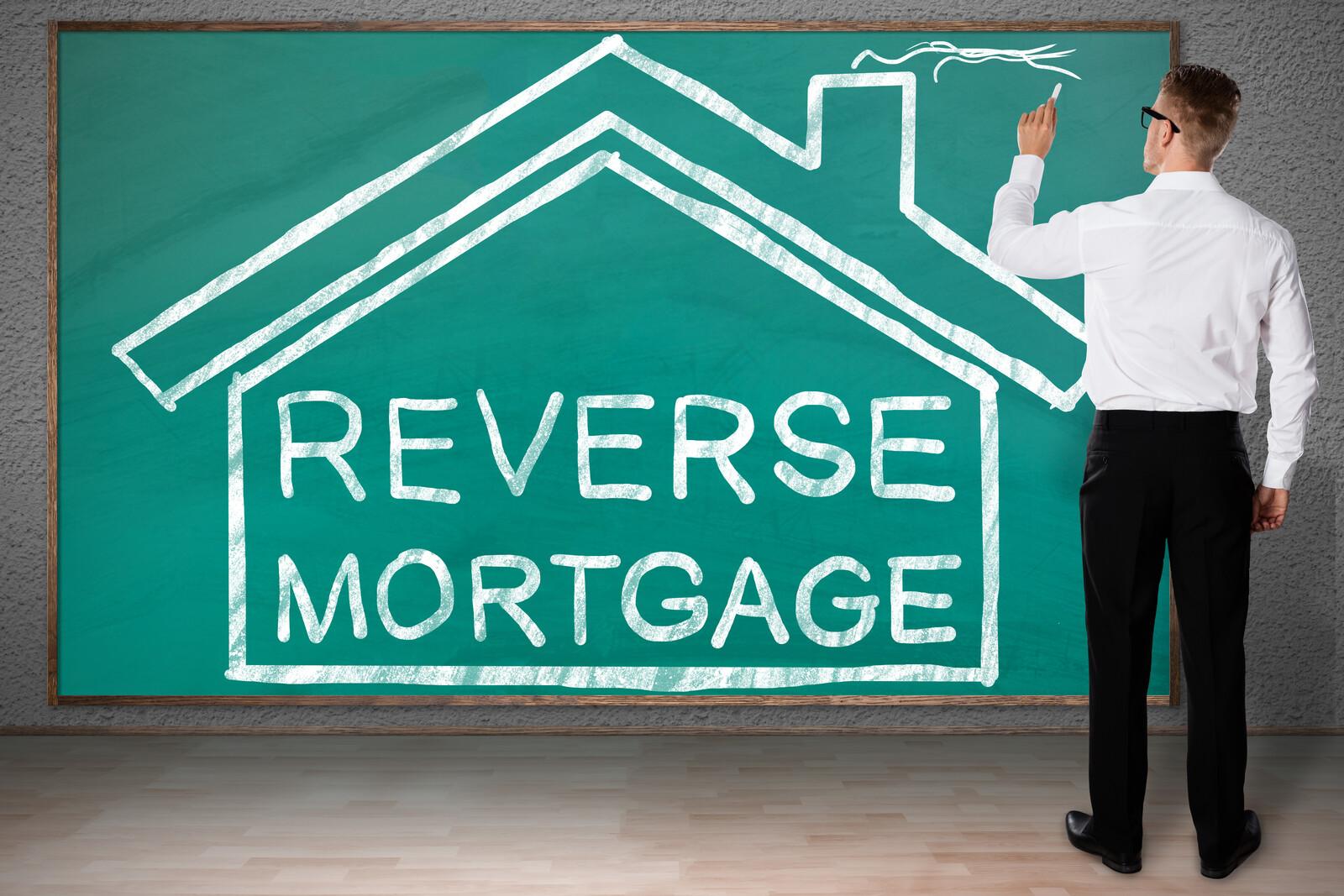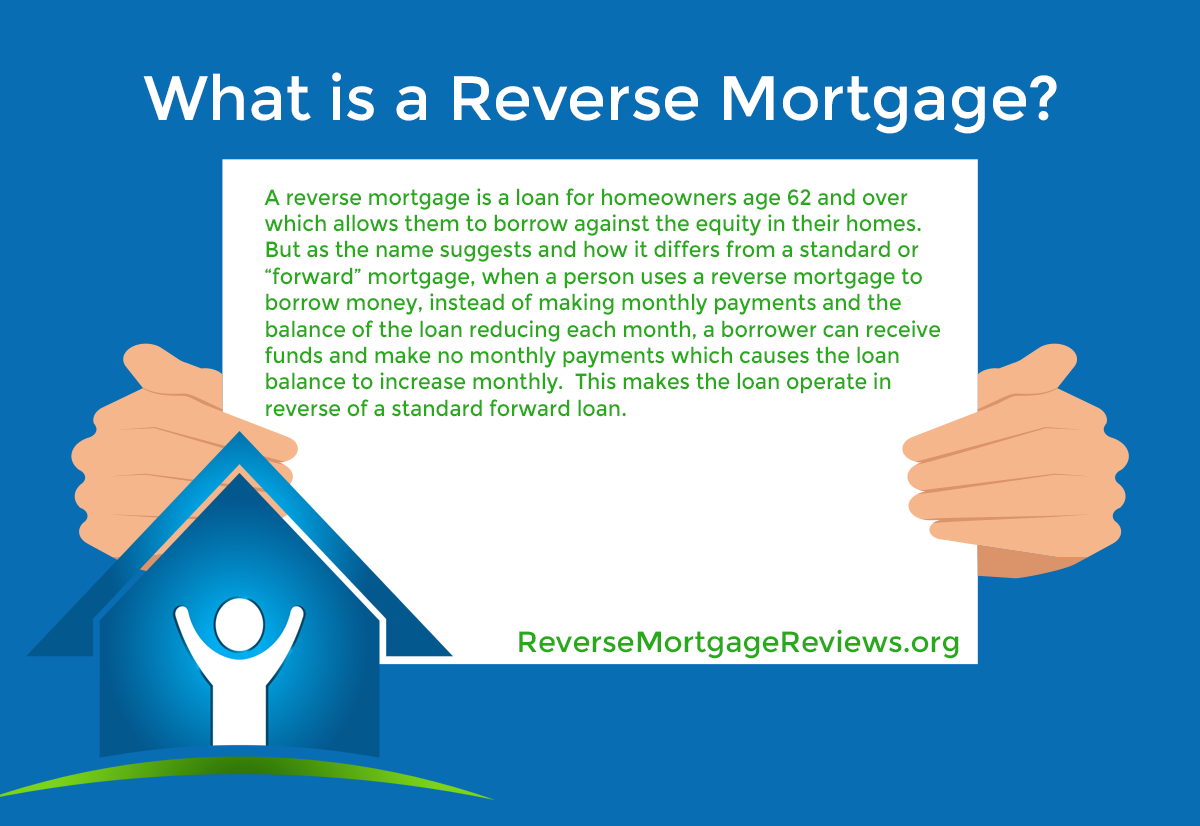How to Purchase Reverse Mortgage and Use It to Fund Your Future
How to Purchase Reverse Mortgage and Use It to Fund Your Future
Blog Article
Empower Your Retired Life: The Smart Method to Purchase a Reverse Home Mortgage
As retirement techniques, many people seek reliable approaches to improve their financial self-reliance and health. Amongst these techniques, a reverse home mortgage emerges as a feasible option for house owners aged 62 and older, allowing them to touch right into their home equity without the need of monthly payments.
Understanding Reverse Mortgages
Comprehending reverse home loans can be vital for home owners looking for economic adaptability in retired life. A reverse home mortgage is a monetary item that enables eligible property owners, normally aged 62 and older, to convert a part of their home equity into cash. Unlike conventional home loans, where borrowers make regular monthly settlements to a lender, reverse mortgages allow house owners to get repayments or a lump sum while retaining possession of their home.
The amount available via a reverse home loan depends upon several variables, consisting of the house owner's age, the home's value, and current passion rates. Importantly, the lending does not need to be settled up until the property owner offers the home, leaves, or dies.
It is crucial for prospective borrowers to recognize the ramifications of this financial item, including the effect on estate inheritance, tax factors to consider, and ongoing duties associated to residential or commercial property upkeep, taxes, and insurance policy. Additionally, counseling sessions with licensed professionals are usually needed to make certain that customers totally comprehend the terms and problems of the car loan. On the whole, a complete understanding of reverse mortgages can equip homeowners to make educated choices regarding their economic future in retirement.
Benefits of a Reverse Home Mortgage
A reverse mortgage provides numerous compelling benefits for qualified home owners, especially those in retired life. This financial tool enables elders to convert a part of their home equity right into cash money, providing crucial funds without the demand for monthly home loan settlements. The cash obtained can be utilized for various purposes, such as covering clinical expenditures, making home renovations, or supplementing retired life revenue, thus improving total financial versatility.
One significant benefit of a reverse home loan is that it does not need settlement until the house owner leaves, offers the home, or dies - purchase reverse mortgage. This attribute enables senior citizens to preserve their way of living and satisfy unanticipated prices without the burden of monthly repayments. In addition, the funds received are generally tax-free, allowing homeowners to utilize their cash without anxiety of tax obligation ramifications
Moreover, a reverse mortgage can offer assurance, knowing that it can offer as a monetary safeguard throughout difficult times. Property owners likewise retain ownership of their homes, guaranteeing they can continue living in a familiar environment. Inevitably, a reverse home loan can be a tactical economic source, empowering retired people to manage their funds properly while appreciating their gold years.
The Application Refine
Browsing the application process for a reverse home loan is an important step for property owners considering this monetary choice. The initial stage includes reviewing eligibility, which commonly calls for the property owner to be a minimum of 62 years old, own the building outright or have a low home loan equilibrium, and occupy the home as their main residence.
As soon as eligibility is verified, home owners have to undertake a therapy session with a HUD-approved counselor. This session makes certain that they completely recognize the effects of a reverse home loan, consisting of the responsibilities included. purchase reverse mortgage. After finishing therapy, applicants can proceed to collect needed documentation, consisting of proof of earnings, assets, and the home's value
The next step requires submitting an application to a lending institution, who will assess the financial and residential or commercial property credentials. An assessment of the home will additionally be carried out to determine its market value. If approved, the lending institution will certainly provide car loan terms, which ought to be reviewed carefully.
Upon approval, the closing process adheres to, where final papers are authorized, and funds are paid out. Comprehending each stage of this application process can substantially improve the house owner's confidence and decision-making relating to reverse home mortgages.

Trick Considerations Before Buying
Purchasing a reverse home loan is a considerable monetary decision that requires cautious factor to consider find of several essential variables. Examining your economic requirements and objectives is equally important; establish whether a reverse mortgage lines up with your long-lasting plans.

Additionally, evaluate the effect on your present way of living. A reverse home mortgage can impact your eligibility for specific federal government benefits, such as Medicaid. Seek expert advice. Consulting with an economic expert or a real estate therapist can supply useful insights customized to your specific situations. By completely examining these considerations, you can make a much more educated decision about whether a reverse home mortgage is the appropriate economic method for your retired life.
Making the Most of Your Funds
Once you have actually safeguarded a reverse home loan, successfully managing the funds becomes a top priority. The flexibility of a reverse home mortgage enables home owners to make use of the funds in numerous methods, however calculated planning is important to maximize their benefits.
One vital technique is to create a spending plan that describes your monthly expenditures and financial objectives. By determining essential costs such as healthcare, real estate tax, and home upkeep, you can assign funds as necessary to guarantee lasting sustainability. Furthermore, consider making use of a portion of the funds for financial investments that can generate revenue or appreciate in time, such as common funds or dividend-paying stocks.
An additional important element is to maintain an emergency situation fund. Reserving a get from your reverse home loan can help cover unexpected expenses, giving satisfaction and monetary security. Consult with a financial consultant to discover feasible tax obligation effects and how to integrate reverse home loan funds right into your total retired life approach.
Ultimately, prudent administration of reverse home mortgage funds can boost your economic safety and security, enabling you to enjoy your retirement years without the stress and anxiety of economic unpredictability. Mindful preparation see here now and educated decision-making will certainly make certain that your funds function properly for you.
Conclusion
Finally, a reverse mortgage presents a practical monetary technique for senior citizens seeking my latest blog post to improve their retired life experience. By transforming home equity into easily accessible funds, people can resolve necessary costs and protected additional funds without sustaining regular monthly payments. However, mindful factor to consider of the connected implications and terms is vital to optimize benefits. Inevitably, leveraging this economic device can promote greater self-reliance and enhance general lifestyle throughout retirement years.
Recognizing reverse home loans can be crucial for house owners looking for monetary flexibility in retirement. A reverse home mortgage is a monetary item that allows eligible home owners, usually aged 62 and older, to transform a part of their home equity into cash money. Unlike traditional home mortgages, where consumers make regular monthly payments to a lender, reverse home mortgages allow homeowners to get settlements or a lump amount while maintaining possession of their residential or commercial property.
Overall, a thorough understanding of reverse mortgages can equip home owners to make educated choices concerning their financial future in retirement.
Consult with an economic expert to explore possible tax obligation effects and just how to incorporate reverse home mortgage funds right into your total retirement approach.
Report this page